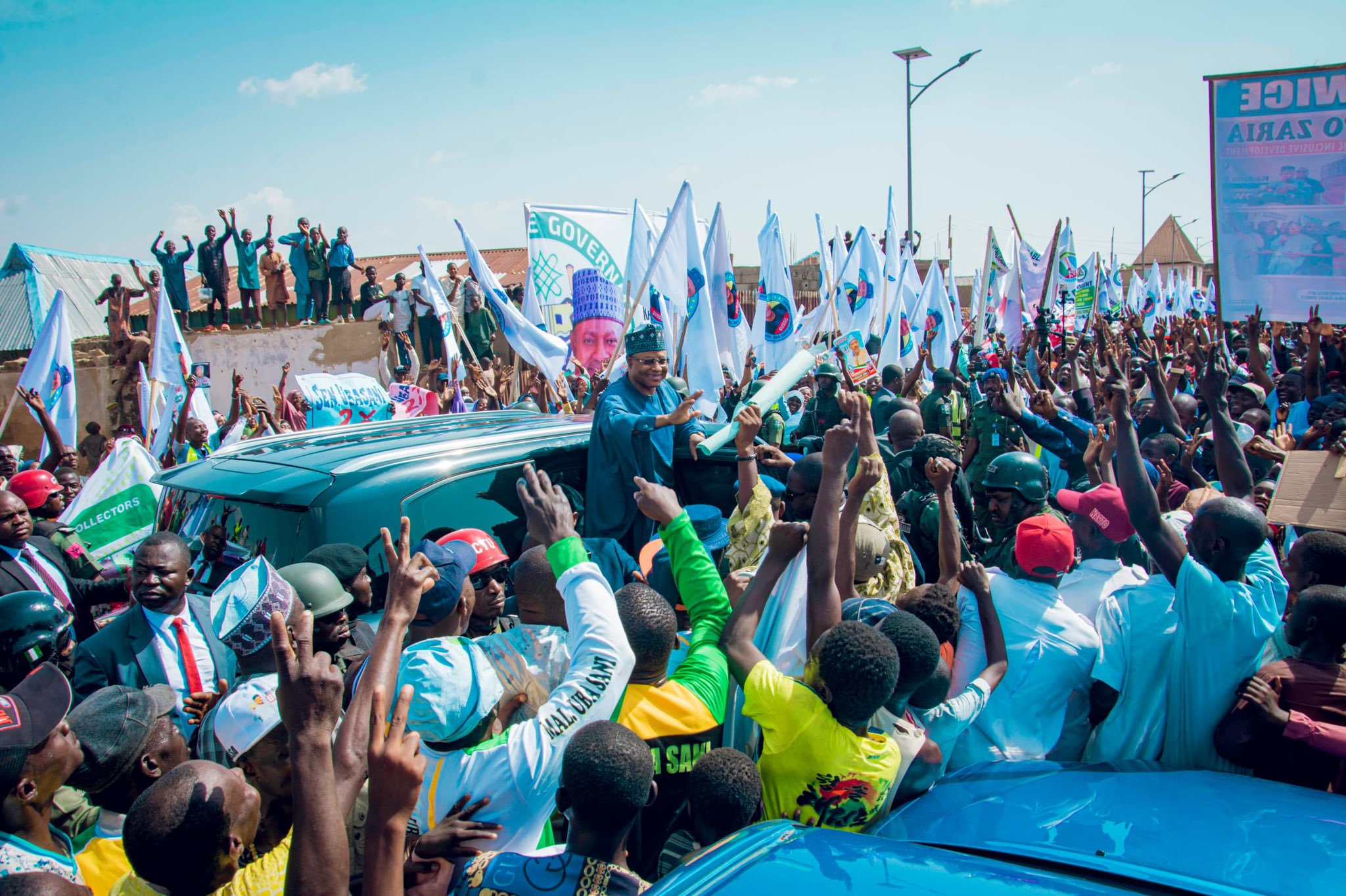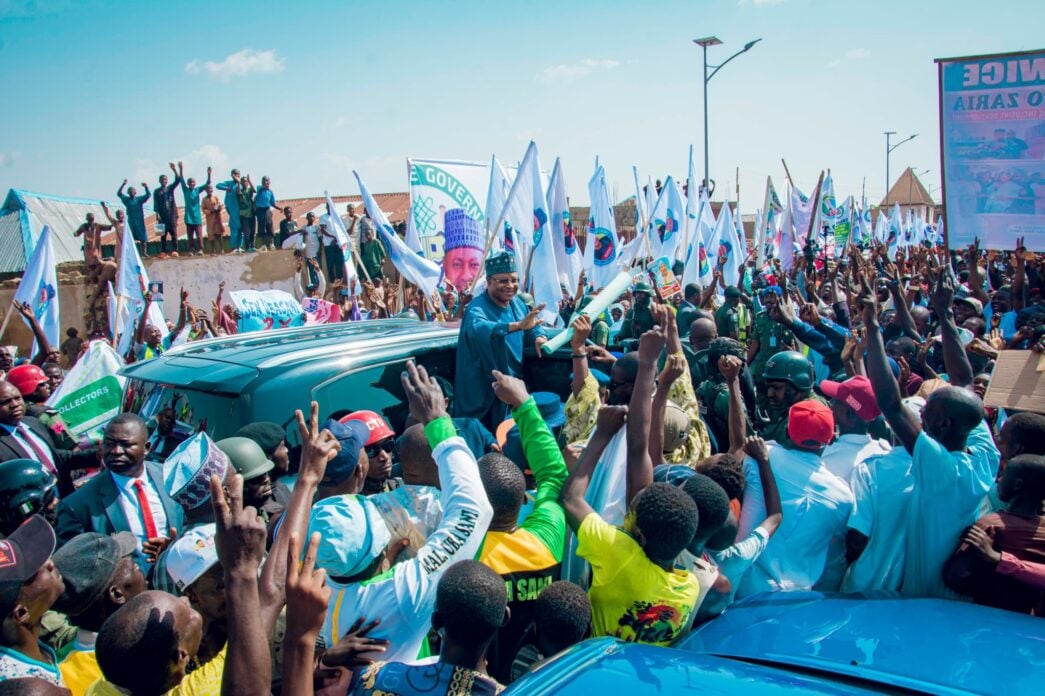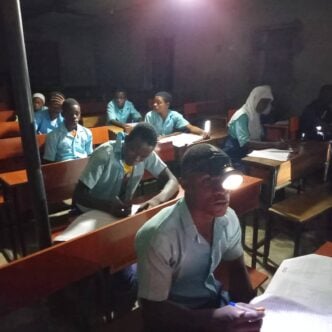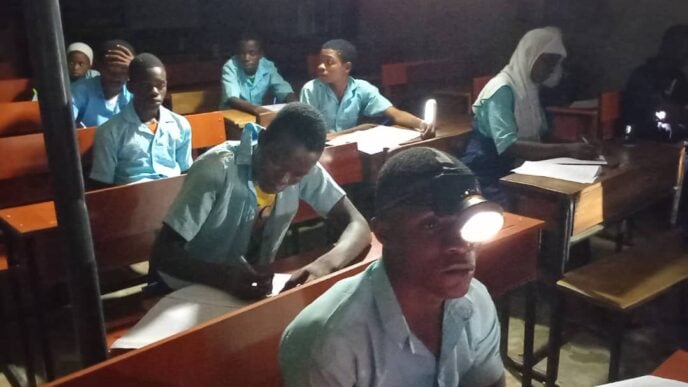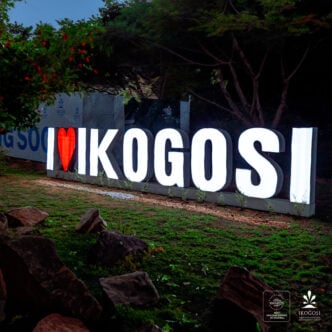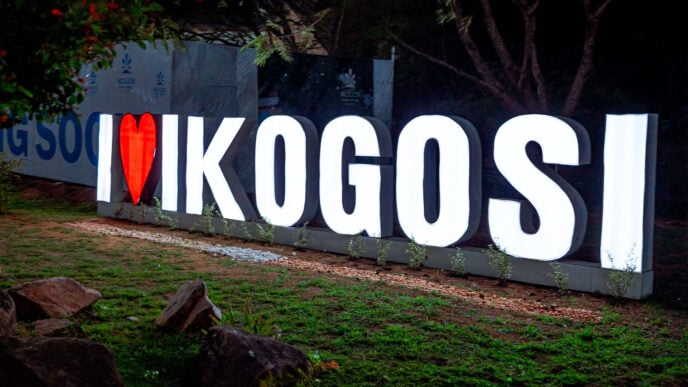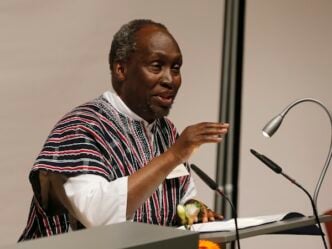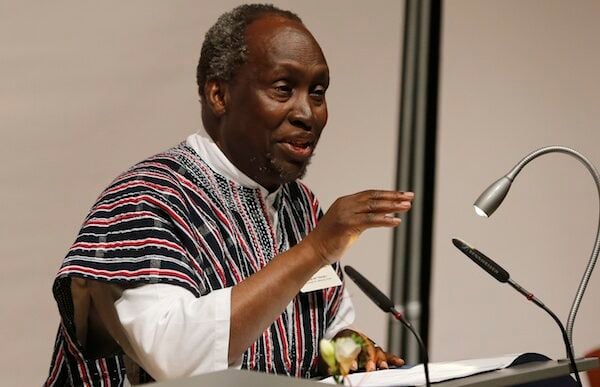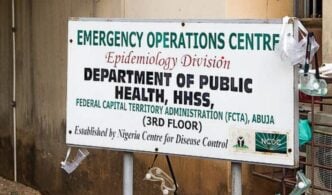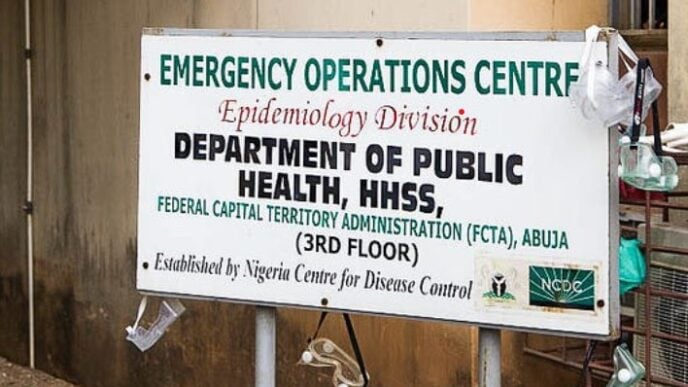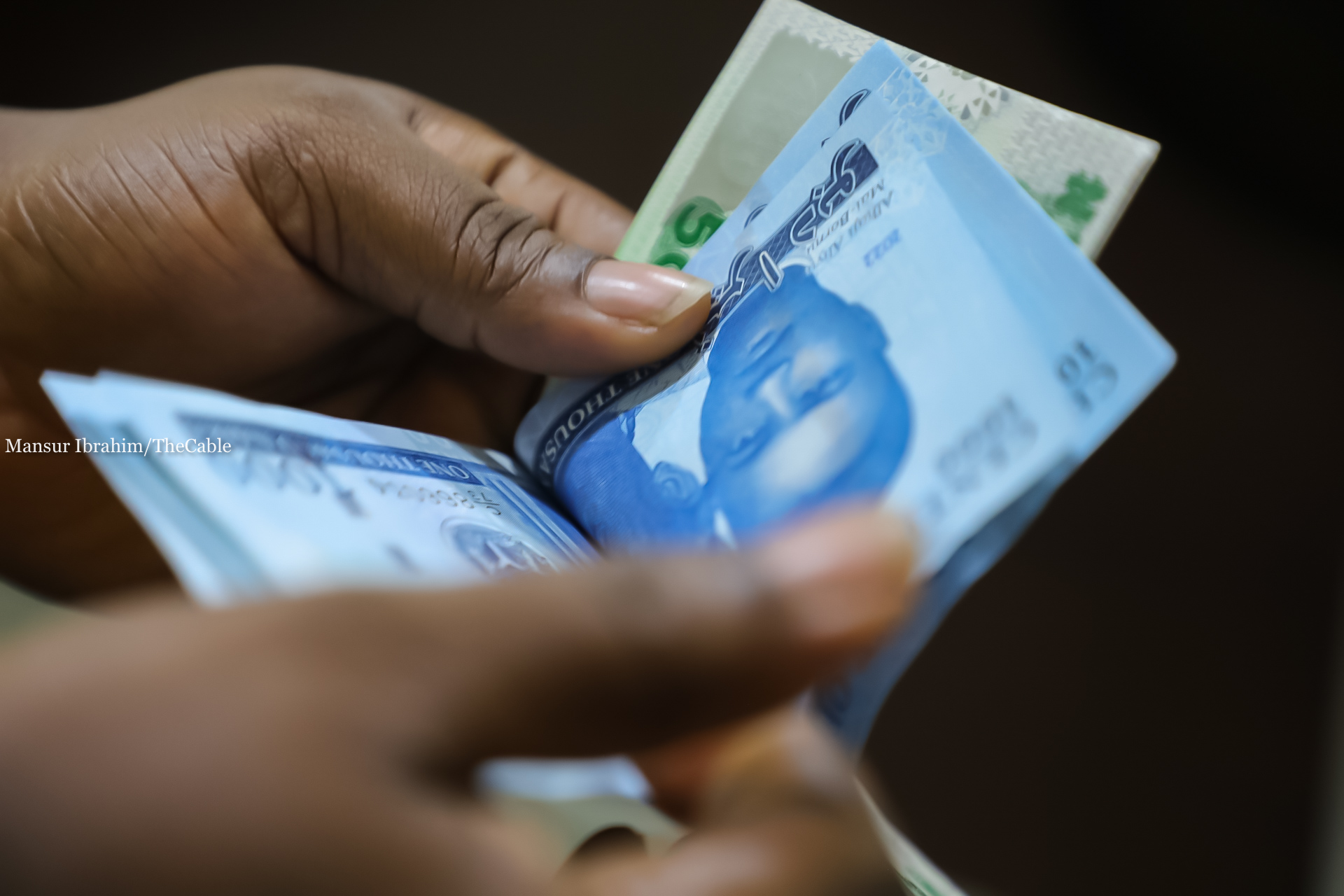BY MANSUR UMAR
When Senator Uba Sani took the oath of office on May 29, 2023, as the Governor of Kaduna State, few anticipated the seismic changes his leadership would usher in within just two years. Kaduna, once a symbol of Nigeria’s promise, had become an archetype of decline — bedeviled by insecurity, disunity, infrastructural decay, and financial distress. But under Uba Sani’s stewardship, the tide has turned. Today, Kaduna is rising — not just as the political and industrial heartland of Northern Nigeria — but as a beacon of inclusive governance, sustainable development, and economic revival.
Governor Uba Sani’s most urgent challenge was Kaduna’s frightening descent into a security quagmire. In his characteristically pragmatic fashion, he addressed the crisis head-on. Adopting a comprehensive security strategy that blended kinetic and non-kinetic measures, he worked in close coordination with the Office of the National Security Adviser, the Defence Headquarters, and paramilitary forces to regain control across all 23 local government areas.
Yet, it wasn’t just boots on the ground that changed the narrative. Uba Sani’s deep investment in inclusive governance, community engagement, and conflict resolution proved the game-changer. He brought local leaders, traditional rulers, youth groups, and faith-based actors into the fold, weaving a web of collaboration that disarmed tensions and restored trust. It was not brute force, but unity, empathy, and openness that made the real difference.
Governor Uba Sani understood that meaningful development cannot thrive in an atmosphere of fear and insecurity. And so, from the very beginning, he took the battle to the root causes of Kaduna’s security woes — poverty, illiteracy, exclusion, and lack of trust between government and communities.
Advertisement
Kaduna State’s peace model, championed by Governor Uba Sani, is a groundbreaking blend of security collaboration and grassroots engagement. Recognizing that lasting peace requires community trust, the model prioritizes inclusive dialogue, traditional leadership involvement, and economic empowerment. By combining kinetic force with non-kinetic strategies — including trust-building meetings with religious and traditional leaders — the state has reduced insecurity significantly. Markets have reopened, displaced communities are returning, and trade routes are thriving again. Kaduna’s approach shows that peace is not imposed; it is cultivated through equity, trust, and responsive governance driven by community participation and transparent leadership.
“I sat down with traditional rulers, religious leaders… it was the community themselves who owned the initiative,” Governor Uba Sani said of the Kaduna Peace Model.
Thanks to this model, economic activities have returned to previously volatile areas like Birnin Gwari, where estimated 25 to 30 trailers now leave daily for Lagos with cattle, and markets once shuttered due to violence have reopened.
Advertisement
Governor Sani has redefined leadership in Kaduna through a governance model rooted in inclusivity, accountability, and participatory democracy. He actively engages with citizens across the political, ethnic, and religious spectrum. Regular town hall meetings, stakeholders’ fora, and grassroots consultations have ensured that government policies and projects are informed by local needs and community feedback.
This citizen-centric model has healed old wounds. The sense of ownership and belonging among Kaduna’s diverse peoples has never been more profound. Political opponents and apolitical citizens alike acknowledge the governor’s unifying influence.
One of Governor Uba Sani’s most striking leadership philosophies is his steadfast refusal to politicize governance. He governs Kaduna with the clear understanding that leadership is a sacred trust — one that transcends party lines or voting history.
“Given my background as a civil rights activist, I made it clear to everyone (from Day One) that we must relegate politics and focus on governance. I know it’s difficult, but I believe it’s the best approach — and we’ve seen the results,” he explained in an interview.
Advertisement
Indeed, Governor Sani’s inclusive approach has unified the state’s often fragmented constituencies. He insists, “When I assumed office, I made it clear that I wasn’t going to focus only on those who voted for me… Governance is for everyone.”
This resolve has seen him bridge political divides with astonishing results — including mass defections from opposition lawmakers to the ruling APC, owing largely to the confidence and trust he has built across the board.
Kaduna under Uba Sani has become a vast construction zone. Recognizing infrastructure as the bedrock of socio-economic advancement, the Governor embarked on an ambitious programme to rebuild, rehabilitate, and reimagine the state’s physical assets. From the rejuvenation of road networks to the completion of long-abandoned projects, Kaduna is being stitched back together — community by community, kilometre by kilometre.
Previously isolated rural areas are now linked to urban centres, opening access to markets, schools, and hospitals. Urban renewal projects have also taken root, especially in neglected inner-city areas. The transformation of Kaduna North, Zaria, Kafanchan, and other key urban nodes underscores the Governor’s resolve to ensure that no segment of the population is left behind.
Advertisement
Governor Sani’s mission has always been clear: connect every corner of Kaduna — rural and urban — through first-class roads, bridges, and transport infrastructure. One of his most ambitious undertakings is the Bus Rapid Transit (BRT) system in Kaduna — only the second of its kind in Nigeria after Lagos.
One of Governor Uba Sani’s most visionary initiatives has been his push to make Kaduna Nigeria’s agro-industrial capital. With fertile lands and a rich agricultural heritage, Kaduna had long been sleeping on a goldmine. Not anymore.
Advertisement
Through investments in agro-processing zones, support for mechanized farming, and facilitation of partnerships between local farmers and global agribusinesses, Kaduna is now on a trajectory to becoming a major exporter of value-added agricultural products. This has translated into jobs, higher incomes, and improved food security — with ripple effects across the economy.
A deeply overlooked constituency in Kaduna — the unbanked and financially excluded — has found an unlikely champion in Governor Uba Sani. In July 2023, he signed an Executive Order aimed at integrating approximately 2.1 million underserved citizens into the formal financial system. This initiative focuses on rural areas, where financial exclusion is most prevalent.
Advertisement
The Executive Order mandates the creation of a comprehensive State Register for the poor, underserved, and vulnerable populations, subject to integrity tests. Collaborating with banks, fintech companies, and regulatory agencies, the government has opened bank accounts for these individuals and conducted financial literacy workshops to enhance their financial decision-making skills. Key stakeholders, including traditional rulers, religious leaders, and community organizations, are actively involved in the sensitization process to ensure widespread participation.
As of April 2025, over 2.5 million bank accounts had been opened, and nearly seven million citizens had registered for National Identification Numbers (NINs), facilitating their access to financial services such as banking services, credit, insurance, and digital payment platforms. Governor Sani emphasizes that true financial inclusion empowers individuals to participate meaningfully in the economy, break the cycle of poverty, and improve their quality of life. The state’s financial inclusion strategy is significantly reducing poverty and enhance economic opportunities for its citizens.
Advertisement
“As at 2023, over 85% of the people in the Northwest were either not educated or financially excluded,” Governor Uba Sani lamented. But under his watch, Kaduna State has rolled out extensive financial inclusion programmes, especially targeting rural women, youth, and MSMEs. These programmes have empowered entrepreneurs, created jobs, and bridged long-standing economic divides. The Kaduna Enterprise Development Agency (KADEDA) has expanded access to grants, low-interest loans, and skills acquisition, thus energizing Kaduna’s economic base.
In the same regard, Governor Sani has tackled education with the urgency it deserves. Beyond infrastructure renewal and teacher training, his most impactful reform has been the slashing of tuition fees in state-owned tertiary institutions. This bold step has removed financial barriers for thousands of students and repositioned Kaduna as a centre of academic excellence in the North.
Additionally, massive investments have gone into upgrading public primary and secondary schools, ensuring that every child — regardless of background — has a shot at a better future.
“Kaduna State was number 12 in WAEC rankings. Today, we’re number 7. And at this rate, we could be number 1 or 2 soon,” he said with pride.
The story in healthcare is equally transformative. Under Uba Sani, Kaduna has upgraded 250 primary health centres to level two — “the highest by any state in Nigeria,” the Governor said. Maternal health services have improved drastically, with pregnant women now able to access fully equipped and staffed facilities across the state.
“We’ve also recruited 2,000 additional personnel for our primary healthcare centres,” the Governor added. Meanwhile, the Kafanchan General Hospital has been approved for conversion to a Federal Medical Centre, showing federal recognition of the state’s health sector gains.
Kaduna’s healthcare system is undergoing a revolution. From equipping primary health centres in rural areas to rehabilitating general hospitals in urban zones, the government is bringing healthcare closer to the people. Maternal and child health programmes have expanded. Immunization campaigns have been scaled up. Health insurance coverage is on the rise. In record time, healthcare has become more accessible and effective.
A hallmark of Governor Sani’s leadership is his commitment to transparency. Public procurement has been digitized. Contracting processes are now open and competitive. Financial disclosures are regularly published. Kaduna’s Budget Office has become a model of fiscal discipline and citizen engagement. The result? Increased investor confidence and reduced corruption.
As security improved and infrastructure rebounded, Kaduna began to attract attention from investors. Through investment promotion drives, public-private partnerships, and business-friendly policies, the state has welcomed billions of naira in domestic and foreign investment — particularly in agriculture, manufacturing, and renewable energy.
The Kaduna Investment Promotion Agency (KADIPA) has become a one-stop shop for investors seeking clarity, convenience, and credibility. Uba Sani’s reformist image and track record of delivery have made Kaduna an investment destination of choice.
Governor Uba Sani’s leadership is transformational not because it is loud, but because it is intentional, inclusive, and rooted in service. In two years, he has stabilized Kaduna, energized its economy, united its people, and shown that governance without politics is not only possible — it is superior.
The new Kaduna is not just a vision. It is happening. It is measurable. It is inspirational. And it is driven by a man who understands that leadership is not about self, but about lifting others. Senator Uba Sani may not speak often about legacy — but his work is writing it daily, across the length and breadth of Kaduna State.
In just two years, Uba Sani has restored the people’s faith in governance and rekindled Kaduna’s identity as a pacesetter in Northern Nigeria. The progress so far is not just impressive; it is profound. And if the past two years are any indication, the next two promise nothing short of transformation. Kaduna has found in Uba Sani not just a Governor, but a statesman, a visionary, and above all, a servant-leader.
Umar resides in Kurmin Mashi, Kaduna.
Views expressed by contributors are strictly personal and not of TheCable.
